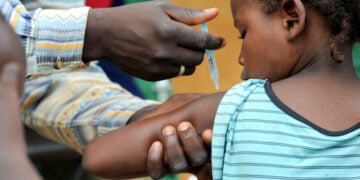Chief medical director of Nordica Fertility Centre, Dr Abayomi Ajayi, has called for stronger government intervention to make High-Intensity Focused Ultrasound (HIFU), a non-invasive treatment for fibroids and adenomyosis accessible to more Nigerian women, saying no woman should die from a condition that can now be treated safely without surgery.
Dr. Abayomi, who made the call during a virtual press briefing to mark more than a year of HIFU treatment in Abuja, said the breakthrough technology has continued to deliver impressive results, but its benefits remain beyond the reach of most women due to cost barriers.
“Access to quality and affordable healthcare is ultimately a government responsibility. This technology is quite capital-intensive, but we have the expertise. At Nordica, we took loans to acquire the HIFU machines and continue to subsidise the treatment. We are the cheapest provider worldwide,” Dr. Ajayi said.
“Elsewhere, HIFU costs between $5,000 and $8,000, but we charge much less. We’ve even treated some patients for free, but that alone cannot solve the problem. For wider access, the government and the National Health Insurance Authority (NHIA) need to step in,” he added.
He urged the NHIA to include HIFU in its coverage, noting that women who make up a large proportion of the population and workforce suffer disproportionately from fibroid-related complications.
While Nordica currently has a partnership with the Federal Capital Territory Administration (FCTA), Dr. Ajayi clarified that it focuses mainly on public awareness rather than funding treatment.
“The FCT is still struggling with basic diagnostic equipment like MRI machines, so financing treatment at this level is unrealistic for now,” he said.
Reflecting on one year of operations in Abuja, he said over 100 women had successfully undergone HIFU treatment since July 2024, with no deaths, blood transfusions, or major complications recorded.
“We’ve seen women who conceived naturally after treatment, and others whose quality of life improved significantly. HIFU has proven that fibroids don’t have to mean surgery or infertility,” he said.
Abayomi emphasised that the technology’s safety and effectiveness make a strong case for its inclusion in public healthcare policy. “Success here is measured by the improvement in quality of life, and in that sense, all our patients have benefited,” he added.
Beyond the physical impact, he noted that fibroid patients also need emotional and psychological support. “Fibroids affect confidence, relationships, and mental health. HIFU helps restore not just the body but the mind,” he said.
He further revealed that Nordica is part of a global HIFU network spanning 40 countries, sharing research and clinical outcomes with centers in China and the United Kingdom.
“As we expand, we want Nigerians to know that HIFU is available and effective. We hate hearing that women are dying from fibroids when safer, non-surgical options exist. no woman should die from fibroids,” Abayomi said.





